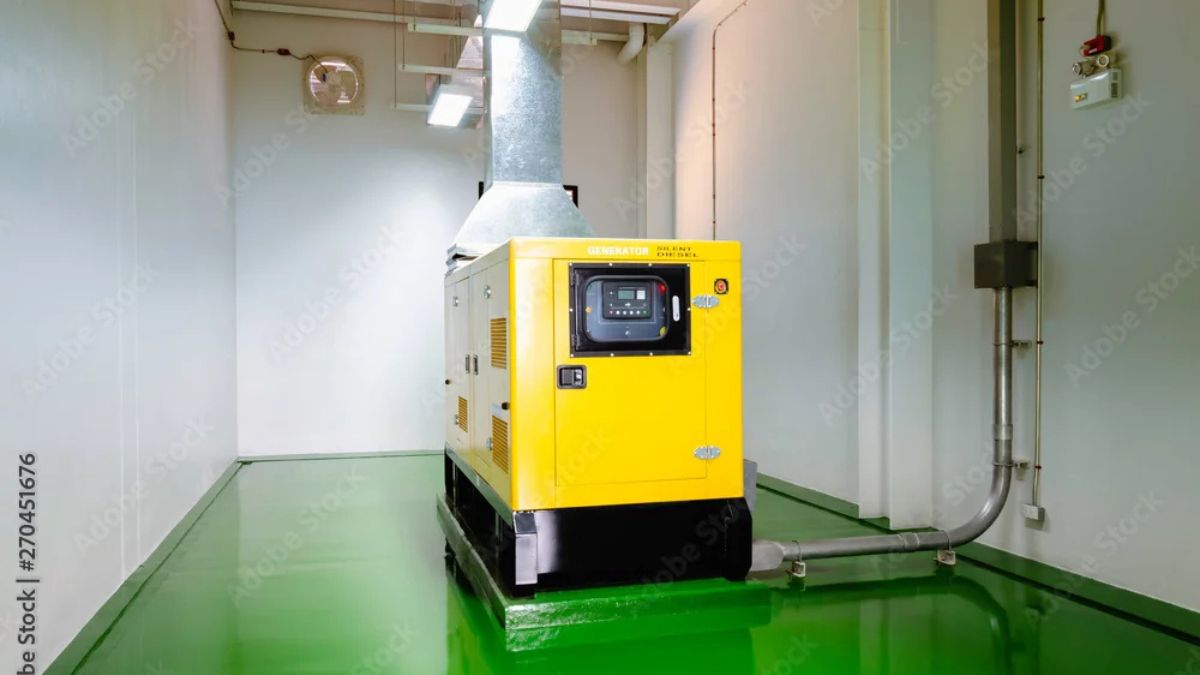Choosing the Right Gas Generator for Your Business Power Needs
Every business needs a power source to do its job (and with all the reliance on technology for work, that need is all the more paramount). But having an emergency power source to supplement your main power is almost as important a requirement; again, given the integration of technology in the modern workplace, that emergency power source is key to maintaining productivity and safeguarding hardware and software.
It may not appear that an emergency power source is necessary, especially given that your primary grid is adequate most of the time, but always keep in mind that outages can occur anywhere and at any time. One potential solution to the problem of securing an emergency power source is a gas generator. Of course, selecting the right one for your specific business needs does require careful consideration and preparation. There’s never a one-size-fits-all solution to any problem, and so finding the right emergency power solution requires an understanding of your situation to ensure you find a generator that adequately meets your needs.
1. Assess Your Power Requirements
The first and most crucial step is to accurately determine your business’s total power consumption. This isn’t simply a matter of measuring how much power your lights and computer consume; you also need to account for all essential equipment (including industrial machinery, HVAC systems, and even future expansion). To accomplish this step, you’ll need to calculate the running wattage of all critical devices that must remain operational during an outage. You’ll also need to consider both continuous loads and surge loads (the extra power needed when an appliance starts up). Overestimating slightly is often wise to provide a buffer, but underestimating your consumption can lead to an undersized generator which may fail to meet your demands. Consult with an electrician or power systems expert if you’re unsure about these calculations.
2. Determine Generator Type
As a general rule, there are two types of generators: portable generators and standby generators. Portable generators are, in general, smaller, more mobile, and typically used for temporary power needs or for smaller businesses. These models require manual setup and refuelling prior to use. Standby generators, meanwhile, are installed permanently and designed to automatically kick in when grid power fails. In contrast to mobile models, these generators are larger, more powerful, and are often fuelled by natural gas or propane from a dedicated line, which eliminates the need for frequent refuelling. For most businesses (or at least those with larger-scale operations), a standby generator offers a more robust and hassle-free solution (thanks to its automatic operation and higher capacity).
3. Fuel Source Considerations
Gas generators can run on several different types of gas, be it natural gas, propane, or gasoline. Gasoline generators are generally less expensive upfront but often have limited fuel storage capacity and shorter run times (which may be an issue if you expect frequent use of your generator). Natural gas generators offer a continuous fuel supply if connected to a municipal gas line, which does make them more ideal for extended outages. Last of all, propane generators provide a clean-burning fuel option with good portability (if using tanks) and longer shelf life than gasoline. Your choice of fuel will primarily depend on factors like your local infrastructure, budget, and the duration of anticipated power interruptions. Do some research into potential suppliers (such as josefgases.com) to ensure a steady supply of the right (and sufficient) fuel for your generator before it’s needed.
4. Noise Levels and Emissions
Generators (and this is especially true of larger models) can be noisy to operate. Consider your business’s location and proximity to neighbours. Fortunately for the noise-conscious business owner, many modern generators are designed with sound attenuation features to minimize discomfort. That said, it’s still a prudent move to check the decibel rating (for health reasons as much as for ensuring local peace of mind). Likewise, be mindful of emissions. Ensure the generator you choose complies with local environmental regulations. Some regions have stricter standards for air quality, and selecting a model with lower emissions might be a priority.
5. Installation and Maintenance
A gas generator is a significant investment, and its proper functioning depends heavily on correct installation. For standby units, professional installation by certified technicians is mandatory to ensure safety and compliance with building codes. Regular maintenance is also critical for longevity and reliable operation; as such, this meticulousness will require routine inspections, oil changes, air filter replacements, and fuel system checks. Factor in the cost and logistics of ongoing maintenance when making your decision; if necessary, there are services available (such as Lamina) with whom you can partner to ensure you have sufficient capital to install and use your generator when needed.
With the help of these five points, you can help educate yourself concerning the right qualities in a prospective emergency gas generator. Remember, choosing the right gas generator is a vital investment, intended to safeguard your business from power disruptions, ensure continuity, and support your peace of mind. Therefore, to invest in a reliable power solution is to invest in your business’s future resilience.
